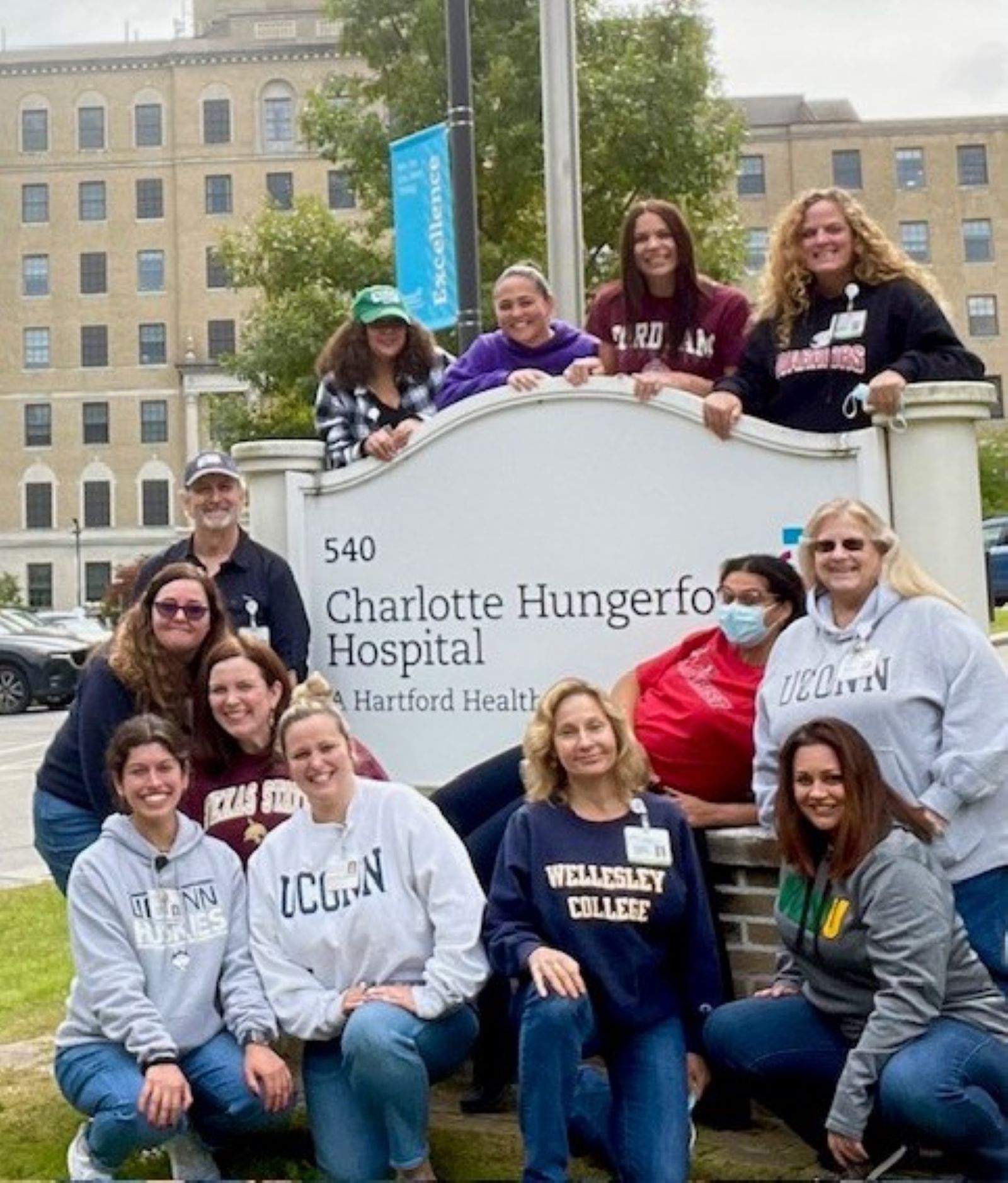<< Back
Charlotte Hungerford Expanding Mental Health Offerings

February 23, 2024
It can be challenging for people who live in rural areas to find the specific healthcare they need, and it can be even more challenging when that care involves mental health. Even in Connecticut.
That’s why Charlotte Hungerford Hospital’s behavioral health team is always expanding and tweaking the programs they provide to the greater Torrington and northwest Connecticut communities.
In addition to traditional programs like partial hospitalization (PHP) and intensive outpatient (IOP) groups, Cathy Dean, LCSW, clinical manager of Adult Outpatient Behavioral Health, and psychiatrist Louis Forouhar-Graff, MD, are “always working to add new outpatient groups to meet specific needs,” Dean says.
One such example is the Recovering Body & Mind IOP, which uses the felt sense of the body as a resource for integrative healing. By tapping into the physical sensations that accompany different mental states, group members will strengthen the capacity to tolerate and resolve symptoms of anxiety, depression, anger, compulsion, and trauma. These embodiment skills complement traditional cognitive behavioral therapy (CBT) by aiding self-regulation and enhancing connection with others.
Other groups include: relapse prevention, CBT anxiety, men’s group, young adult group, women’s group for 55 and older, grief and loss, depression/behavioral activation, DBT skills, “Beyond Blue” for ages 55 and older, “Connecting to Calm,” “Thoughtful Thursdays,” and “Transitions,” which supports patients between levels of care.
Charlotte Hungerford Hospital’s Behavioral Health Center (BHC) treats about 2,500 patients annually, providing individual therapy, group therapy, and medication management for adults. The center is fully staffed with licensed clinicians, psychiatrists, psychiatric APRNs, case managers, and more.
“We are the largest mental healthcare provider in Litchfield County,” Dean says. “And we pride ourselves on being a community hospital, treating the people who live here.”
The hospital staff work closely with community partners, including the Litchfield County Opiate Task Force, looking not only at treatment but also prevention and education.
Still maintaining the small hospital “feel” helps staff work closely together as well, Dean notes. “What’s really special about our team is the collaboration we have and the respect for each other’s therapeutic expertise. We have opportunities each morning to talk about our challenging cases, so we can support each other and brainstorm what may be the next steps.”
Dr. Forouhar-Graff, who is associate medical director of adult outpatient behavioral health services, notes that the case management component of the mental health care provided at Charlotte Hungerford is critical to helping patients deal with what can be the overwhelming issues of simply getting by. Challenges such as housing instability, food instability, lack of employment, lack of transportation can all serve as barriers to mental health recovery.
“We have built our expertise and our understanding, so we are able to help as much as possible with these types of issues,” he says. “With all these programs it is very much a team approach. It’s so critical to have as many as possible helping each person with these complex inner and outer difficulties.”